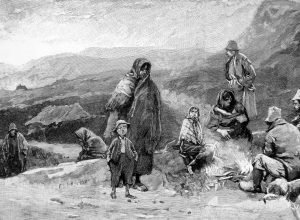ARTICLE: Some countries don’t allow the cultivation of GMOs — here’s why this is a big problem
The following is an excerpt of an op-ed by GMO Answers expert Michelle Miller, also known as the Farm Babe, on the Ag Daily website why its important for countries to allow for the use of GMO technology.
On Aug. 20, I gave a speech in Dublin, Ireland, at the International Association for Plant Biotechnology Congress. It was an excellent opportunity where I was able to speak to some of the leading experts in plant biotechnology from around the world.
On our farm, we do try and use the latest and greatest methods of science and plant biotechnology. Just like I enjoy learning about plant breeding from plant breeders, they also enjoyed hearing from a farmer and our personal success story of how GMOs have helped us on our farm. Bioengineered crops are grown on over 440 million acres around the world, so many farmers obviously see the benefits — or else they wouldn’t choose to grow them. For us, we can utilize no-till farming, eliminate insecticide spray, and use fewer and safer herbicides, just to name a couple of benefits off the bat.
So after I spoke, my remarks were quite well received. Scientists get it. They devote decades worth of research to helping farmers everywhere, while helping the environment at the same time. For us in the U.S., we have 10 genetically engineered crops commercially available, but not every country has that advantage. One person in particular stuck out to me. They were from France and were very disheartened to share that GMO crops were not allowed to be cultivated in their country. (Although they can import them, so odd.)
And this is where this story totally breaks my heart. I heard from Dr. Even Mullins about problems affecting potatoes on Irish farms that have been affected by blight. This plant disease makes it to where farmers have to spray their fields 15 to 17 times a growing season with fungicide to try to combat this awful disease.

But there is a solution! Using ciscenic breeding, scientists have taken a gene from the wild potato and inserted it into the modern potato we all know and love today. It’s nothing weird; no inserting of foreign DNA, no weird chemicals, it’s quite a non-invasive answer to a serious problem. But it’s a “GMO.”
Because of this, the government won’t allow it to be cultivated, and that’s so sad. Potato chips and french fries are delicious — wouldn’t it be great to know they were never sprayed with fungicide? FIFTEEN times?!? Scientists and farmers want the technology, and it’s there at the fingertips, but the government won’t allow it. But why?
As usual, government politics and red tape get in the way. From what I understand, in Ireland they want to maintain that “green” image of agriculture. By allowing GMO cultivation, they feel it may hurt their image. Isn’t that disheartening? It’s all marketing. Just like here in the U.S., the non-GMO label has been a huge marketing scheme to try to make their products sound superior, although that just isn’t usually the case. If the government could get on board, if the food companies and marketing could be more honest, if they could work together to understand science and how it helps farmers, the world would be a much better place. Unfortunately fear, not science, sells stories in the media, and politicians want to take stances on certain issues to try to get re-elected … science and facts be damned.